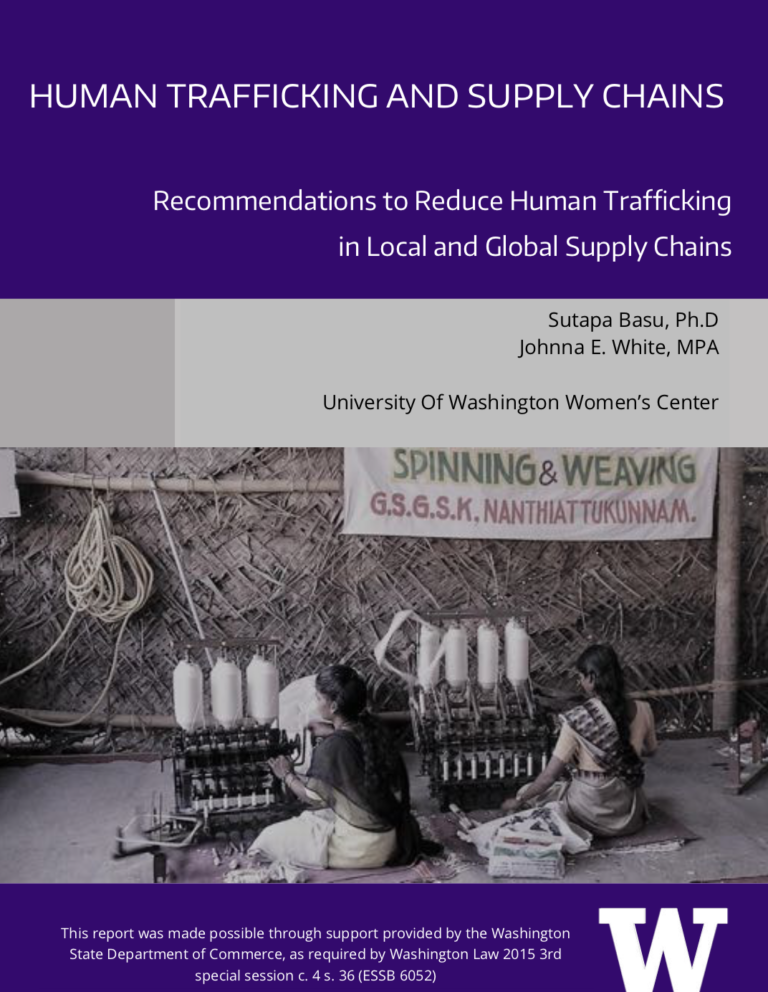The trafficking of persons is a growing human rights problem that affects individuals locally and globally and is exacerbated by public and private supply chains.
Outsourcing goods and services to countries with lower labour standards than in the U.S. has traditionally been one of the ways companies decrease production costs. However, this leaves many businesses, particularly those with global supply chains, at risk of contributing to forced labour practices abroad. In addition, we have found that human trafficking is present in Washington’s local supply chains and has been reported in eighteen counties within numerous industries. Washington’s commercial landscape offers opportunities for exploitation in sectors that are both predisposed to human trafficking and contribute to the local economy including construction, manufacturing, agriculture, hospitality and food, all of which collectively generate nearly $100 billion towards the state’s GDP.
To gather assessments from individuals and organizations on how to reduce labour trafficking, researchers interviewed legal, non-profit service providers and academic experts, inquiring about nuanced supply chain practices and their perspectives on ethical sourcing successes (smart practices) and challenges, monitoring, and pragmatic policy development.

